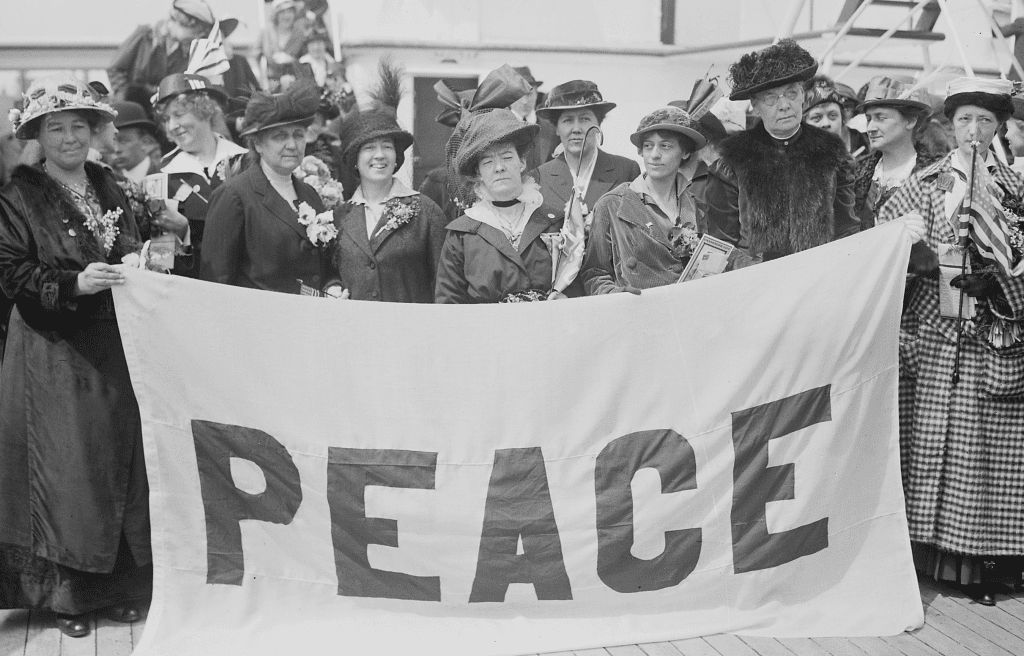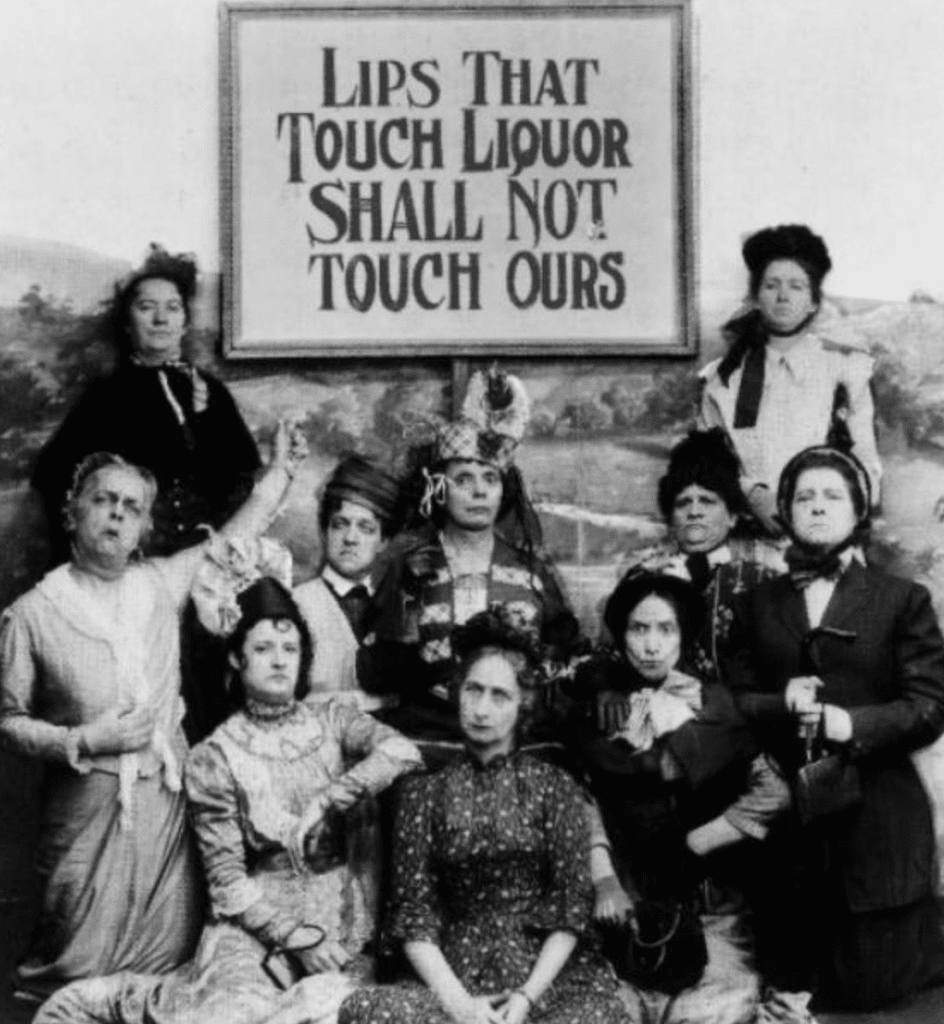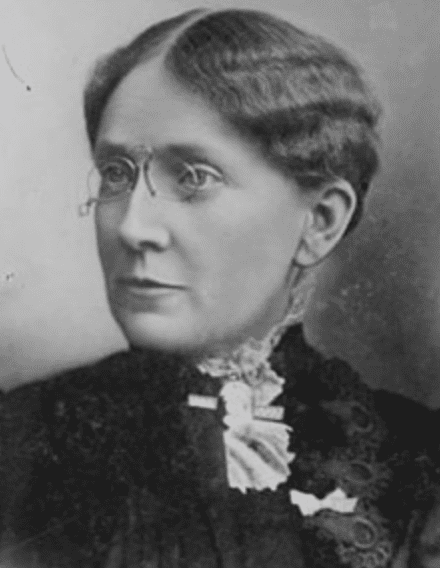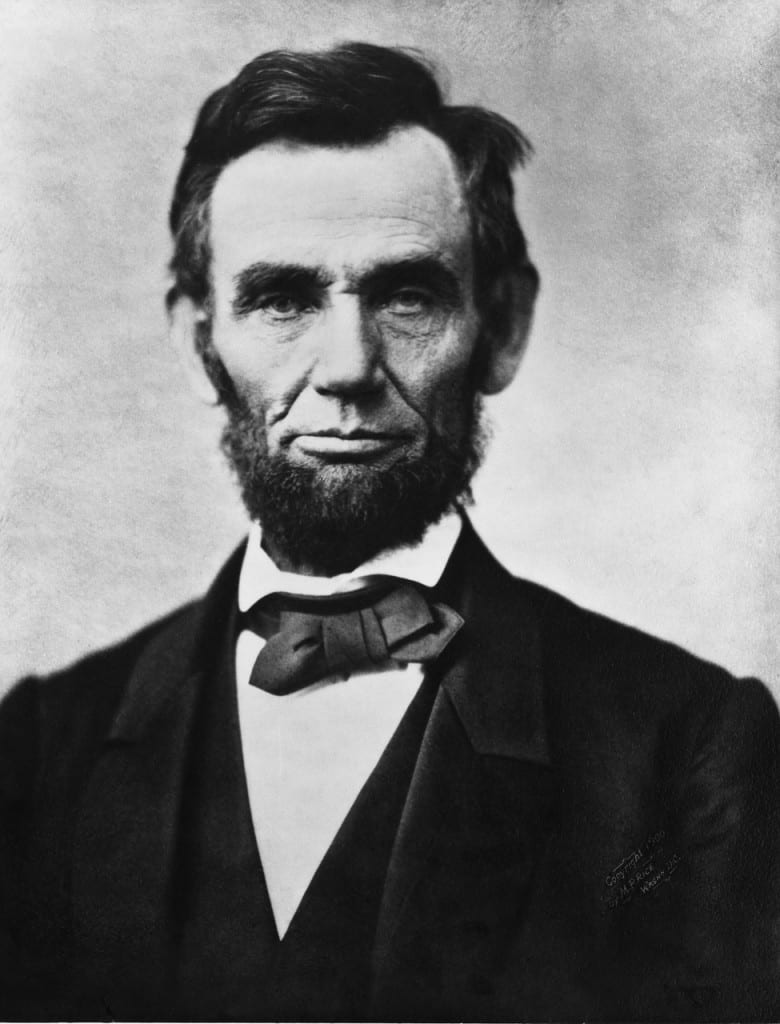Since its beginning, I.O.G.T. was founded on the principle of equality. It meant that women not only were welcome to join as members, but also to take on more responsibility by being members of boards. In 19th century USA, I.O.G.T. was the first organization of its kind to “allow” female members.
The first female President to lead I.O.G.T. International was Amanda Clark of Ohio, United States. She was Vice President of I.O.G.T. International and led the movement in 1858 for a year, when the elected President had passed away.
I.O.G.T. was, however, dominated by its male members. The example of Sweden tells the story: in 1900, at least 41% of the I.O.G.T. members in Sweden were women. There were many highly engaged women working to better society. Formally, women and men were equal members but in reality it was rare for women to hold high-level positions. The culture within I.O.G.T. had a tendency, despite being in the forefront of welcoming women as members, that reduced women to second-level figures that should only brew coffee. Women’s tasks within local groups were often limited to “household tasks.”
 The first ever elected International President who is a woman is Kristina Sperkova, of Slovakia, who took office in 2014.
The first ever elected International President who is a woman is Kristina Sperkova, of Slovakia, who took office in 2014.
I.O.G.T. was an island of democracy and equality, including for women – despite limitations and confines. History would show that this school of civic engagement, taking on responsibilities, public speaking and working politically would enable I.O.G.T. women to help change the world.
Two early examples are Elisabeth B. Stanton and Susan B. Anthony, who were members of American temperance associations and involved in the anti-slavery movement. When Stanton was denied speaking at the World’s Anti-Slavery Convent in 1840, she took initiative to exclusively gather women in a public event in Seneca Falls, New York. This was the start for both the American and international women’s right movement.
The American pioneers working to advance Women’s Rights and the alcohol-free lifestyle, Stanton and Anthony, travelled the world and created a network of heart-driven women. Eventually they formed the International Council of Women in 1888. Just nine years later, the ICW represented more than four million women from around the world. The ICW advocated for women’s rights and freedoms, especially voting rights, and served to facilitate international cooperation. When crisis struck and war broke out, ICW assembled its women in 1915 and created the Women’s International league for Peace and Freedom.

I.O.G.T. Suffragettes in Manchester
Another example for the temperance movement in general and I.O.G.T. in particular serving as catalysts for women’s civic engagement are the so called Woman’s Crusades.
The Woman’s Crusade of 1873-74 was a culmination across the United States of many years of women taking direct action against the saloon and the liquor traffic. Women in the United States then enjoyed no direct political power. Only prayer vigils, petition campaigns, demonstrations, or hymn-singing were at their disposal. The crusade sought to persuade saloon-keepers to destroy their beverages, close their doors, and enter some other line of business. In the course of a year, almost 1000 protest marches were organised, with peak participation of 143.000 women.

Women campaigning for alcohol control
The lasting effect of the Woman’s Crusade was to set women free to become driving forces in the effort for women’s voting rights. A network had taken shape, empowered by the experience of making a difference in public – a crucial experience for the emerging Women’s Rights movement.
Not only in the United States, but in countries around the world – such as Australia, the United Kingdom, or Sweden – did female temperance leaders play a vital role in the women’s suffrage movement. Moreover, an international perspective helps to reveal the importance of women’s temperance to the struggle for women’s suffrage.
I.O.G.T. played a significant part in the suffragette movement – both through convening meetings and conferences and through I.O.G.T. women who dedicated to the cause of Women’s Rights.
Ada Bromham (1880-1965), feminist and temperance worker is one such example, from Australia. She was the president of the West Australian Temperance Alliance and secretary of the Australian Women’s Equal Citizenship Federation in 1925. The year after, she became secretary of the Australian Federation of Women’s Societies.

Frances Willard
Many women, schooled in I.O.G.T., helped form and develop the Woman’s Christian Temperance Union (WCTU). American scientists say that WCTU played a decisive role in American society in general and in the movement for women’s voting rights in particular.
The most famous leader of WCTU is Frances Willard, an educator, temperance reformer, and women’s suffragist. Her influence was instrumental in the passage of the Eighteenth (Prohibition) and Nineteenth (Women Suffrage) Amendments to the United States Constitution. Willard became the national president of WCTU in 1879, and remained in office for 19 years.
Across many societies, women from the temperance movement, including I.O.G.T., were able to present powerful arguments that drove the Women’s Rights movement forward. In Sweden for example, the campaign for women’s voting rights gathered momentum when some female I.O.G.T. members and other women under the leadership of Emelie Rathou formed the Swedish WCTU (“Vita Banded”) in 1900. Rathou had joined I.O.G.T. in Sweden in 1884 and became a pioneer within both the I.O.G.T. and the voting rights movement. Rathou worked as travelling speaker, addressing the topics of peace, women’s rights and temperance. She was the first woman ever to give a speech at a International Workers’ Day rally in 1891. In 1919, women in Sweden were granted the right to vote. Rathou was part of the leadership of Vita Bandet for almost 50 years.
From the beginning, the women of our movement were at the forefront of tackling major social and Human Rights issues.


 The first ever elected International President who is a woman is Kristina Sperkova, of Slovakia, who took office in 2014.
The first ever elected International President who is a woman is Kristina Sperkova, of Slovakia, who took office in 2014.


